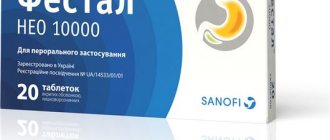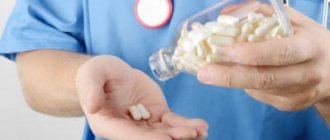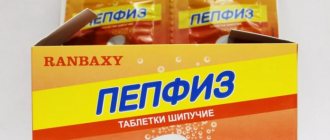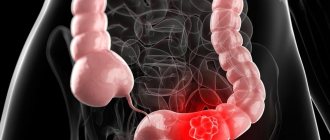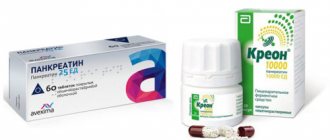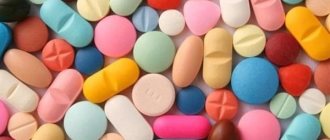Bloating is an uncomfortable sensation where the stomach and intestines swell, stretch, and create a feeling of fullness and tension. Typically, this condition appears after poor nutrition and is often accompanied by rumbling.
Each person has an individual reaction to certain foods and drinks. Bloating can make us feel helpless. Anti-bloating and gas tablets will help you feel comfortable in any situation.
Main reasons
Gas is present in the intestinal tract in humans, but too much gas can lead to bloating, belching, and flatulence.
Causes of bloating and excess gas include:
- accumulation of food in the stomach;
- improper passage of stool;
- formation of diverticula, adhesions and polyps in the intestine;
- malignant tumors in the intestines;
- swallowed air during running and fast walking;
- certain products;
- cardiovascular diseases;
- non-compliance with diet;
- improper consumption of food;
- consumption of incompatible products;
- diabetes;
- liver dysfunction;
- stagnation of bile in the gallbladder;
- stressful situations;
- insufficient water consumption.
Blocking symptoms with medications
Many tablets have been developed that help reduce the accumulation of gases in the intestines, accelerate motility, and exhibit antifoaming activity.
There are tablets that improve digestion, reduce bloating and help pass gas.
We invite you to familiarize yourself with the composition, properties, and indications for use of drugs of various pharmacological groups.
Effective carminatives (defoamers)
Carminative tablets (defoamers) - change the surface tension of blisters with their further destruction and partial absorption into the intestinal mucosa, and also complicate the formation of new ones.
Espumisan
The tablet contains: simethicone.
An effective drug used for:
- bloating;
- Rechmeld syndrome;
- flatulence;
- aerophagia;
- when diagnosing the abdominal cavity;
- as an antifoam agent for poisoning.
Contraindications: intestinal obstruction.
side effects of Espumisan were observed during use.
Price of tablets: 275.00 rub.
Inexpensive analogues:
- Simethicone;
- Simekol;
- Disflatil;
- Antiflat;
- Lannacher;
- Infacol.
Bobotik (drops) and Sub-simplex (suspension)
Ingredients: simethicone, silicon dioxide.
Helps relieve bloating and excessive gas in children.
The drugs are contraindicated in case of hypersensitivity to the active substance or intestinal obstruction.
A side effect may be an allergy.
Price - Bobotik: 254.00
Sub-simplex: 265.00.
Pepsan-R
Tablet composition: dimethicone.
It is used to break down foam in the intestines, help gases to be absorbed into the blood and come out, and help reduce excess gas formation.
Tablets are contraindicated in case of hypersensitivity and intestinal obstruction. There are allergies to the components of the tablet.
Price: 350.00 rub.
Dimethicone (H2SiO)n – accelerates motility, exhibits antifoaming activity, and reduces gas formation. Contraindicated in case of hypersensitivity. Allergies, rashes, itching, and angioedema may occur.
Enterosorbents (adsorbents)
The main function of drugs is to cleanse the body.
White coal
Tablet composition: white coal.
Helps:
- get rid of indigestion;
- food, alcohol, chemical intoxication;
- acute intestinal infections;
- when affected by helminths;
- with bloating.
Contraindications for white coal:
- sensitivity to the substance;
- pathologies of the intestinal mucosa;
- ulcers of the gastrointestinal tract;
- intestinal bleeding;
- intestinal obstruction;
- pregnancy;
- when breastfeeding;
- children under 1 year.
Usually the tablets are well tolerated, sometimes constipation is observed. Allergies may occur when consumed.
Price: 145.00 rub.
Activated carbon
Tablets are used to reduce bloating, dyspepsia, and flatulence.
Contraindications: for intestinal and stomach ulcers, bleeding.
As a result of use, the following are possible: constipation, loose stools, lack of proteins, vitamins, hormones, and fats in the body.
Price: 6.00 rub.
Analogues:
- Carbopect;
- Sorbex.
Lactrofiltrum
The tablet contains: lignin, lactulose.
Lactofiltrum is used for:
- disturbance of microflora in the intestines;
- after antibiotic therapy;
- irritable bowel syndrome (IBS);
- hepatitis;
- hives;
- atypical dermatitis.
Contraindications:
- intestinal obstruction;
- bleeding of the stomach and intestines;
- hypersensitivity to the composition of the tablet.
Rarely there are side effects - flatulence, diarrhea.
Price: 314.00 rub.
Filtrum
Active ingredient of Filtrum: lignin.
Shown for:
- salmonellosis,
- food infections,
- dysentery;
- dyspepsia;
- acute poisoning;
- food and drug allergies.
Contraindicated:
- during exacerbations of intestinal ulcers;
- hypersensitivity to tablets;
- intestinal atony.
Side effects: constipation and skin allergies.
Price: 104.00 rub.
Analogues: Polyphepan
Entegnin
Tablet composition: hydrolytic lignin.
Helps cure:
- dyspeptic disorders;
- food poisoning;
- diarrhea;
- hepatitis (viral);
- dysentery;
- salmonellosis;
- colitis and bloating.
Removes radionuclides.
Contraindication: for hypersensitivity.
No side effects of the tablets were observed.
Price: 215.00 rub.
Smecta
Composition of natural origin.
Shown for:
- acute and chronic diarrhea;
- heartburn;
- bloating and gas formation in the abdomen;
- ulcers of the stomach and intestines;
- gastritis;
- colitis.
Contraindications for Smecta tablets:
- hypersensitivity;
- intestinal obstruction.
If constipation occurs when using the drug, then it is necessary to reduce the dosage.
Price: 144.00 rub.
The best enzyme preparations
The property of enzyme preparations is to improve digestion, reduce heaviness in the stomach and relieve the burden on the pancreas. Here is a list of the best drugs.
Holenzym
Ingredients: dry bile.
Cholenzym is used for:
- liver inflammation;
- inflammation of the gallbladder;
- bloating.
Contraindications:
- sensitivity to the composition of the tablet;
- acute and chronic pancreatitis;
- jaundice.
Side effects: allergies.
Price: 218.00 rub.
Mezim Forte
Tablet composition: pancreatin.
Indications for use of Mezim:
- chronic pancreatitis;
- liver disease;
- disruption of food digestion;
- flatulence;
- diarrhea;
- bloating;
- eliminates excessive gas formation;
- preparation for ultrasound.
Contraindications:
- sensitivity to the components of the tablet;
- galactose intolerance,
- lactose deficiency;
- indigestion.
Allergies are possible when taking tablets.
Price: 65 - 300.00 rub.
Analogues:
- Pancreatin;
- Pentisal;
- Micrasim;
- Enzistal;
- Creon;
- Hermital.
Festal
Tablet composition: pancreatin, bile extract.
Indications for use:
- lack of digestive enzymes produced by the pancreas;
- flatulence;
- bloating, cholecystitis;
- before the examination;
- eliminates gas formation;
- after treatment with antibiotics for elderly people with lost functions of the masticatory apparatus.
Contraindications: hepatitis, jaundice (caused by blockage of the bile ducts).
Side effects of Festal: allergies.
In children, irritation near the anus and irritation of the mucous membranes is possible.
Price: 143.00 rub.
Analogues: Enzyme Forte.
Pangrol
The tablet contains: pancreatin, lipase, amylase.
Indications for use:
- in the postoperative period;
- pancreatic diseases;
- pancreatitis;
- narrowing of the bile ducts due to a tumor or gallstones;
- after radiation therapy of the intestinal organs;
- with bloating;
- flatulence and diarrhea.
Pangrol contraindications:
- sensitivity to the components of the tablet;
- acute and chronic pancreatitis.
When taking pills, the following often occurs: vomiting, nausea.
GI disorders are associated with the underlying disease.
Rarely: rash, itching, urticaria.
Price: 201.50 rub.
Prokinetics
Prokinetic drugs – stimulate intestinal motility.
Trimedat
The tablet contains: trimebutine maleate.
Indications for use:
- IBS;
- reflux;
- stomach ache;
- nausea;
- vomit;
- intestinal colic;
- bloating;
- intestinal spasms;
- flatulence.
Contraindications:
- greater sensitivity to the components of the tablet;
- children under 3 years old;
- pregnant women and during lactation.
Side effects of Trimedat: skin reaction.
Price: 506.00 rub.
Analogue: Neobutin.
Ganaton
The tablet contains: Domperidone.
Indications for use:
- to relieve symptoms of nausea and vomiting (lasting less than two days);
- for discomfort and burning after eating;
- feeling of fullness in the stomach;
- nausea;
- bloating.
The drug normalizes intestinal function, relieves pain and eliminates gases.
Children are prescribed 0.5 - 1 tablet before meals 3 times a day for a month. Small children are given medicine in liquid form.
Contraindications:
- hypersensitive;
- pituitary tumor;
- impaired liver or kidney function.
Side effects:
- heartburn;
- intestinal cramps;
- diarrhea;
- lactation disturbance;
- irregular menstrual cycle;
- urinary retention.
Price: 350.00 rub.
Analogues:
- Itomed;
- Primer;
- Motilium;
- Domperidone;
- Motilak;
- Passengers.
The cheapest Domperidone tablets: Price 70-205 rubles.
Gastrikumel
The tablet contains: argentum nitricum, arsenicum album and others.
Indications for use:
- gastritis;
- heartburn;
- bloating;
- flatulence.
There are no known contraindications for the tablets.
Side effects: allergic reaction.
Price of tablets: 315-485 rub.
Avioplant
The tablet contains: ginger officinalis.
Indications for use of tablets:
- kinetosis;
- nausea and vomiting after surgery;
- intestinal hypomotility;
- biliary dyskinesia;
- bloating;
- flatulence.
Contraindications:
- vomiting in pregnant women;
- children under 12 years of age;
- women during lactation.
Take with caution for: gastritis, stomach or intestinal ulcers.
Side effects: allergies, heartburn.
Price: 137.70 rub.
Cerucal
The tablet contains: metoclopramide hydrochloride.
Indications for use of Cerucal:
- vomit;
- nausea;
- decreased intestinal tone;
- biliary dyskinesia;
- bloating;
- flatulence;
- before diagnosis.
Contraindications for tablets:
- intestinal obstruction;
- tumor;
- epilepsy;
- pregnancy 1st trimester;
- breast-feeding;
- children under 2 years old;
- increased sensitivity to sodium sulfite in patients with bronchial asthma;
- for liver dysfunction.
Do not take during breastfeeding and is contraindicated for children under 2 years of age.
There are side effects:
- headache;
- depression;
- dizziness;
- muscle spasms;
- drowsiness.
Price of tablets: 132.00 rub.
Imodium
The tablet contains: loperamide hydrochloride.
Imodium is indicated: for diarrhea.
Tablets are contraindicated when taking antibiotics and acute ulcerative colitis.
There are side effects:
- nausea;
- dizziness;
- vomit;
- rash;
- bloating;
- constipation.
Price of tablets: 237 rub.
Probiotics and Prebiotics
Probiotics – enrich the intestines with the necessary microflora, contain living cells of normal flora, bifidobacteria and lactobacilli.
Prebiotics – stimulate the growth of your own microflora.
Lactovit Forte
Active ingredient of the tablet: folic acid, spores of lactic acid bacteria.
Indications for use:
- colitis;
- bloating;
- inflammation of the genital organs;
- atypical dermatitis,
- hives;
- eczema;
- dysbacteriosis;
- diathesis in children;
- pregnant women in the prenatal period (in case of violation of vaginal secretion up to 3-4 degrees).
The tablets have contraindications: hypersensitivity to the components of the tablet.
Side effects: high sensitivity to vitamin B12, folic acid, galactose and lactose.
Price of tablets: 300.00 rub.
Maxilac
Active ingredient of the tablet: nine probiotic bacteria.
Shown:
- to normalize intestinal microflora;
- as an aid for intestinal disorders;
- during infectious diseases;
- in combination with antibiotics.
The tablets have contraindications: hypersensitivity to the drug.
Side effects: itching, rash.
Cost of tablets: 398-424 rubles.
Linex
Active substance of the tablet: three types of bacteria.
Indications for use:
- regulate the balance of microflora in the intestines;
- dysbacteriosis;
- bloating.
Linex tablets are contraindicated in case of: hypersensitivity to the active substance of the drug.
Side effects: itching, rash.
Price: 487-680.00 rub.
Probifor
Active substance: bifidobacteria.
Indications for use:
- normalizes microflora;
- diarrhea;
- dysbacteriosis;
- food poisoning;
- irritable bowel syndrome;
- inflammatory diseases of the gastrointestinal tract.
Contraindications: lactose deficiency.
Side effects: itching, rash.
Cost of Probifor: 697.00 rub. , capsules 18 pieces: 1309.00 rub.
Hilak Forte
Contains: four types of bacteria.
Indications for use of drops:
- dysbacteriosis;
- bloating;
- salmonellosis;
- infectious diseases;
- staphylococcal enterocolitis;
- cholecystitis;
- pancreatitis;
- diseases of the liver and biliary tract;
- constipation;
- peptic ulcer of the gastrointestinal tract.
Contraindicated in case of hypersensitivity to bacteria.
Side effects: itching, rash.
Price Hilak forte 498.00 rub.
Bifidumbacterin Forte
The tablet contains bifidobacteria.
Indications:
- acute intestinal infections;
- disturbance of intestinal microflora;
- food poisoning;
- bloating.
Tablets are contraindicated in case of hypersensitivity to the drug.
Give with caution to children with lactose intolerance.
Side effects: itching, rash.
Cost of tablets: 500.00 rub.
Lactobacterin
Active ingredient: lactobacilli acidophilus.
Indications for use of tablets:
- dysbacteriosis;
- salmonellosis and dysentery;
- diarrhea;
- non-infectious enteritis and colitis;
- bloating;
- atopic dermatitis;
- gas formation in the intestines.
Contraindications:
- candidiasis;
- hypersensitivity;
- childhood.
Side effects: allergies.
Cost of tablets: 117.60 rubles.
Acipol
The tablet contains: kefir and acidophilus fungi and bacteria.
Tablets are prescribed for:
- acute intestinal infections;
- disturbance of intestinal microflora;
- intestinal disorders;
- colitis;
- bloating;
- enterocolitis;
- in case of bowel dysfunction (constipation and diarrhea);
- allergies;
- intoxication when taking medications.
Acipol has no contraindications.
No side effects were observed when taking the tablets.
Cost of tablets: 338.00 rub.
Bifiform
Active ingredient: bacteria.
Indications for use of Bifiform:
- dysbacteriosis;
- disturbances of intestinal microflora;
- chronic constipation;
- bloating;
- decreased immunity;
- to normalize intestinal microflora.
Contraindications: hypersensitivity to the components of the tablet.
Side effects: allergies.
Cost of capsules: 429.00 rub.
Antispasmodics
Antispasmodic drugs - eliminate pain, reduce spasms of smooth muscles.
Meteospasmil
The tablet contains: alverine citrate, simethicone.
Indications for use:
- impaired intestinal motility;
- formation of gases;
- covers the intestinal wall with a protective film;
- bloating;
- severe form of IBS.
Contraindications: hypersensitivity to the components of the tablet, not recommended for children under 14 years of age.
Take tablets with caution during pregnancy and lactation.
Side effects of the tablets: allergies.
Rarely:
- hives;
- swelling of the larynx;
- shock;
- liver dysfunction.
Cost of tablets: 412.00 rub.
Drotaverine Forte
Active substance of the tablet: Papaverine.
Indications for use:
- spasm of the stomach and intestines, urinary tract;
- stomach and intestinal ulcers;
- constipation, colitis;
- bloating;
- gas retention;
- strong gas formation;
- It is recommended to take children with IBS for 1-1.5 weeks.
Contraindications for tablets: hypersensitivity to papaverine.
Use with caution during pregnancy and breastfeeding.
Side effects: allergic reaction.
Cost of tablets: 128.00 rub.
Analogues:
- No-shpa;
- Spasmone.
Duspatalin
The tablet contains: mebeverine hydrochloride.
Indications for use of Duspatalin:
- intestinal spasms;
- bloating;
- intestinal dysfunction;
- IBS;
- strong gas formation.
Contraindications: age under 18 years, hypersensitivity to the tablet component.
Side effects: allergic reaction.
Cost of tablets: 528.00-639.00 rub.
Tablet analogues:
- Duta;
- Nyaspam;
- Sparex.
Spasmalgon
Contains: metamizole sodium, pitofenone hydrochloride and fenpiverinium bromide.
Indications for use of the tablet:
- intestinal spasms;
- bloating;
- for joint pain;
- strong gas formation.
Contraindications:
- heart failure;
- intestinal obstruction;
- hypersensitivity to the composition of the tablet;
- liver or kidney dysfunction;
- bone marrow failure;
- angina pectoris;
- glucose-6 deficiency;
- children under 10 years old.
Spazmalgon tablets are not recommended for women during pregnancy and lactation.
Side effects:
- kidney disease;
- red urine;
- hypotension;
- tachycardia;
- dry mouth.
With long-term use of tablets - thrombocytopenia, leukopenia, agranulocytosis.
Cost: 154.00-307.00 rub.
Analogues:
- Took;
- Bralangin;
- Geomag;
- Maxigan;
- Spasmoblock;
- Spazgan.
Papaverine
The tablet contains: papaverine hydrochloride.
Indications for use:
- abdominal cramps;
- pylorospasm;
- cholecystitis;
- spastic colitis;
- bloating;
- endarteritis;
- angina pectoris.
For children with IBS, it is recommended for 1-1.5 weeks.
Contraindications:
- AV block;
- glaucoma;
- hyperthermia in the elderly;
- liver failure;
- hypersensitivity;
- for children up to 6 months of age.
Cost of tablets: 36.00 rubles, injections: 38.00-71.00 rubles.
The best enzyme preparations
Enzyme tablets help with bloating and gas formation - they successfully cope with digestive disorders, help digest food faster and empty the intestines.
Holenzym
A choleretic agent improves digestion and is recommended for flatulence.
Has a number of contraindications:
- intolerance to components;
- age restrictions (under 12 years);
- pancreatitis (with exacerbation of a chronic disease or with an acute form);
- hepatitis;
- peptic ulcer of the gastrointestinal tract.
Take tablets after meals three times a day - 1 piece. The maximum course of therapy can last 2 months.
Mezim Forte
Taking an enzyme product helps improve digestive processes.
Contraindications include acute pancreatitis and individual intolerance to the constituent components.
Take 1-2 tablets before meals or during meals three times a day.
Festal
The active substance of Festal, pancreatin, improves digestion - its enzymes help break down carbohydrates, proteins, and fats.
The list of contraindications is extensive:
- acute pancreatitis;
- hepatitis;
- increased bilirubin;
- liver failure;
- intestinal obstruction;
- age up to 3 years;
- the presence of stones in the gall bladder.
Take with caution during pregnancy and cystic fibrosis.
Side effects cannot be excluded:
- allergic reaction;
- nausea, pain in the abdomen;
- diarrhea.
The standard daily dosage involves three times of use: no more than 2 tablets with meals. The duration of therapy is determined by the doctor.
Pangrol
The active substance contained in Pangrol capsules is pancreatin. The drug helps break down food and normalizes the functioning of the pancreas. Contraindications are the same as for Mezim Forte.
Side effects:
- indigestion (diarrhea, bloating, pain);
- nausea;
- allergic reaction.
Approximate dosage for adults: with food, 2 capsules (Pangrol 25000) or 3 pcs. (“Pangrol 10000”) three times a day.
What to drink for bloating and gas during pregnancy and after childbirth?
In pregnant women, bloating occurs as a result of hormonal imbalances. The uterus greatly affects the intestines, pressing on them and deforming them.
Diet, light exercise, chamomile tea, mint tea, dill and fennel infusion will help cope with the problem.
Helps with medications: Activated carbon, Espumisan, Smecta.
People with IBS are very sensitive to even normal amounts of gas in the intestines. For IBS in adults, the drugs Lactrofiltrum and Duspatalin are recommended.
Newborns, pregnant and nursing mothers can take medications only as prescribed by a doctor.
Symptoms and causes of flatulence
Flatulence is a medical term that combines several symptoms accompanying increased formation and accumulation of gases in the intestines.
Regardless of the reasons for this condition, its symptoms are usually the same:
- Feeling of bloating in the abdominal area.
- Heaviness and characteristic “rumbling”.
- Gas colic, giving spasmodic pain.
- Sometimes - nausea, vomiting.
Most often, flatulence is a consequence of physiological causes and is not a sign of serious pathology.
Natural causes include:
- eating food that promotes gas formation;
- overeating or skewed diet towards similar foods;
- swallowing air due to haste, talking, smoking while eating;
- habit of drinking carbonated drinks with food;
- eating exotic, unusual food;
- Frequently drinking soda for heartburn.
Severe gastrointestinal diseases, in which flatulence is just one of the symptoms, give rise to various accompanying symptoms: belching, heartburn, headaches, aversion to food, general malaise, diarrhea and constipation or their alternation. In this case, you should contact a gastroenterologist and undergo an examination to accurately diagnose the real causes of bloating.
Diseases that provoke the accumulation of gases in the intestines and colon:
- irritable bowel syndrome;
- chronic pancreatitis or cholecystitis;
- gastritis or ulcerative lesions of the stomach, intestines;
Peptic ulcer is the most common gastrointestinal disease - disruption of the normal arrangement of microflora in different parts of the gastrointestinal tract;
- adhesions, scars or polyps that interfere with the free movement of the food coma;
- allergic or neurotic flatulence.
Flatulence after eating can occur due to infection or the presence of parasites. Similar symptoms are accompanied by the development of celiac disease (celiac disease) and bacterial proliferation syndrome in the small intestine.
Folk recipes
Folk recipes that help cure gas at home.
Dill and parsley
A decoction of dill seeds helps with bloating.
A dessert spoon of seeds is poured into 0.5 liters of boiled water, brought to a boil, and drunk 1/3 cup 3 times a day.
Parsley not only decorates dishes, but also improves digestion; it is added to salads, first and second courses.
Herbal teas
Medicinal herbs normalize intestinal function: string, thyme, mint, chamomile, fennel. A tablespoon of the collection is poured into 0.5 liters of boiled water, brought to a boil, and drunk 1/3 cup 3 times a day, 30 minutes before meals.
Lemon and ginger
Water with lemon or vitamin C will help calm the digestive system. Half a teaspoon of soda per glass of water acts as an antifoam in the intestines. Ginger is a natural antibiotic that fights fungal infections and toxins, and helps strengthen the body.
Kefir and yogurt
Fermented milk products contain beneficial bacteria that improve digestion.
Prokinetics
Tablets for bloating and gas formation are also represented by prokinetics - drugs that enhance the peristalsis of the gastrointestinal tract. The drugs normalize intestinal function after poisoning and eliminate spasms.
Trimedat
The active substance of the drug is trimebutine.
Contraindication: individual intolerance to the component. It is not recommended to use during pregnancy and lactation.
The dosage and duration of treatment are determined individually.
Ganaton
To increase intestinal motility, Ganaton is prescribed. The active substance in its composition is itopride hydrochloride.
The following contraindications are noted:
- age restrictions (up to 16 years);
- pregnancy, breastfeeding;
- bleeding in the gastrointestinal tract;
- intestinal obstruction.
Side effects are also possible:
- skin itching, rashes, redness, anaphylactic shock;
- leukopenia, thrombocytopenia;
- diarrhea, nausea, painful abdominal cramps;
- increased bilirubin;
- dizziness.
You can take the drug before or after meals - 1 tablet three times a day.
Gastrikumel
The homeopathic remedy is used for flatulence, heartburn and inflammatory diseases of the stomach.
Contraindications: age restrictions (up to 3 years), galactosemia. Take with caution during pregnancy.
Standard dosage: one tablet three times a day. The drug is dissolved under the tongue half an hour before meals or after 60 minutes.
after eating. It is permissible to increase the daily dose in case of acute manifestations of the disease.
Avioplant
The herbal antiemetic drug contains ginger rhizome.
When using Avioplant capsules to combat flatulence, the following contraindications should be taken into account:
- toxicosis in pregnant women;
- lactation period;
- age restrictions (under 12 years);
- calculous cholecystitis;
- sensitivity to constituent components.
Daily dosage: 1 capsule four times. Minimum duration of therapy: 3 days.
Cerucal
Antiemetic tablets "Cerukal" are drunk before meals (30-40 minutes before). Doses are prescribed individually. In some cases, the duration of treatment can be six months.
Dose indicated in the instructions: 1 tablet three times a day.
Imodium
"Imodium" has proven itself well as an antidiarrheal agent. The active substance is loperamide hydrochloride. For acute intestinal disorders, drink 2 capsules once. If the digestive system has not returned to normal, continue to take 1 capsule after each bowel movement.
The influence of diet on flatulence processes
Diet occupies a special place in the process of intestinal treatment. If you eat a well-balanced diet, you can solve the problem without medications.
To do this you need:
- Avoid foods that produce excess gas.
- Follow an individual diet.
- Try introducing fermented foods into your menu: pickles and sauerkraut. These foods help maintain a healthy digestive tract and can enrich the intestines with healthy bacteria that aid the digestive process.
- Exercise and walking help stimulate digestion and reduce gas.
- Avoid legumes, wheat, sweets, dairy, and meat products that increase gas formation.
- You can: buckwheat and oatmeal, baked fish, homemade crackers, walnuts, fruits and vegetables.
How to deal with flatulence?
Treatment of flatulence cannot be without an established cause; you can take medications on your own only at the beginning in order to reduce symptoms and get to the hospital. At the appointment, the doctor will tell you what the person should take, what medications are available for flatulence, and what cannot be used to stop the disease in his case. Consulting a doctor is very important, since if you have bloating, the wrong choice of medications can aggravate the situation.
Most people use medications for flatulence, since folk remedies cannot quickly eliminate the unpleasant symptom. It’s simply not possible to identify the best anti-flatulence remedies and make a list of them.
Video
But we can indicate the main groups of drugs and their most common representatives used to treat bloating in combination and separately:
- Sorbents are used to quickly remove gases and toxins from the intestines of an adult, since such preparations absorb everything unnecessary well and promote accelerated evacuation.
- Defoamers for flatulence help to reduce the size of gas bubbles and they do not cause significant discomfort to a person and easily leave the intestines even with constipation.
- Prokinetics enhance intestinal motor function, promoting the rapid removal of gases from the intestines, which significantly alleviates a person’s condition with flatulence.
- Probiotics improve the balance of intestinal microflora, helping it work and actively remove feces and gases. This group also includes prebiotics - medications that help beneficial bacteria take root and develop in the intestines.
- Enzyme preparations improve digestion processes, making food easier to pass through the intestines. This helps reduce the load on the digestive organs and reduce the amount of gases passing from the stomach into the intestines.
- Antispasmodics - do not help cure flatulence, but relieve pain and spasms, alleviating the person’s condition.
How to treat flatulence depends on the cause of its occurrence. Before using any drug, you should carefully read the instructions, especially if the medicine is taken independently without a doctor's prescription. No one knows for sure what the most effective remedy for flatulence will be for a person, but the doctor will be able to assess all aspects of the problem and prescribe the correct medication.
General principles of treatment
To normalize the functioning of the intestines and stop bothering you with gases, you need to resort to the following methods:
- herbal medicine (herbal treatment);
- exercises for flatulence (biking, squatting, walking, running);
- drug treatment.
Antibiotics kill healthy intestinal microflora, so they are used as prescribed by a doctor when other drugs and treatment methods do not give the expected effect. They are prescribed if excessive gas formation occurs as a result of infectious or inflammatory bowel diseases.
Conclusion
The health of the digestive system is of paramount importance for the entire body. More than half of people suffer from digestive problems: bloating and flatulence.
It's time to reconsider our diet, which affects our gut health and mood.
Instead of feeling bloated, slow and sluggish, you need to lead an active lifestyle. Medicines give our digestive system a helping hand.
If you cannot cope with this task yourself, then it is better to seek help from specialists.


